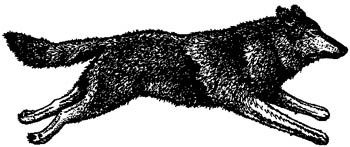Feel the Love
Chip Wendt’s Running Wolf Press is all about the juice
By Jordan E. Rosenfeld
Chip Wendt, the owner and force of nature behind Running Wolf Press in Healdsburg, is looking for some juice. Not Napa grape; not Gravenstein apple. This “juice” comes from the flesh and bones of local writers creating what Wendt terms “needed” art, or more specifically, poetry.
Sniffing the air, flashing a grin as we make our way to a riverside Petaluma cafe, Wendt spins his philosophies. “Poetry is my core artistic legacy,” he begins. It is a legacy made possible, in part, by an inheritance that allows him to write, practice flamenco guitar and tend to the press’ priorities without the constraints of a nine-to-five job. “For now,” he adds.
“If you sit around writing poetry all day long, the heart gets lost in verbiage,” he says, acknowledging that, for many writers, the nose-to-the grindstone approach is what works. His method of poetry spinning is more meditative.
His poems often come while playing guitar, when he has lulled himself into that theta brainwave state of near trance. Within the theta, Wendt’s poems spawn.
“Spawn” might be an appropriate word to use for the formation of Running Wolf Press. After all, the impetus appeared to him in a dream about rivers.
In 1992 Wendt sailed from Long Island to Scotland with his father, crossing the Atlantic Ocean for 21 days without sight of land, and experienced lucid, cinematic dreams. In the most significant dream, he describes being in a rowboat, tooling down a rushing, brown river with none other than the great scholar of mythology and mysticism, Joseph Campbell himself. In the boat also sat a trunk containing all the writing Wendt had ever composed. Instructed by Campbell, Wendt was charged with pulling the boat alongside a big rock and setting his work on it, out of the flood. He was unable to complete this dream task, but when he awoke, his course of action was clear to him. “I knew,” he says, “I had to make a book.”
His first book, Teachings of the Serpent, and his new career, Running Wolf Press, were born together in 1993, as Wendt sought a way to put his poetry out in tangible form. “I was taking the phrase ‘desktop publishing’ literally,” he smiles.
What followed was a period of intense insomnia for Wendt. “Something burst open inside me,” he says. “I wrote several hundred poems. I had [compared] myself to the great writers through the physical object of a book; I experienced the synergy that occurs between poems that you have written when they are placed within covers.”
In the time between, however, Wendt was inspired by the work of the first Healdsburg literary laureate Doug Stout, and Running Wolf Press–whose named is inspired by Wendt’s childhood nickname–published Stout’s chapbook Urgent News in 2000, followed by Sonoma County poet laureate Don Emblen’s chapbook Want List and Other Poems about Aging.
He has supported a great number of local artists, producing inexpensively manufactured chapbooks in small enough quantities to make them affordable, but not chintzy. The books are produced with care and quality. The book that arose out of Wendt’s insomniac nights, Cold Valley, wasn’t published until 2001.
“I had to reconcile the part of me that wanted to live in a cave far, far away with my regular, daily life,” he says. “Up until age 28, I was a sort of hippie, spiritual seeker. I lived on communes, I joined cults, did lots of meditation–all the appropriate behaviors.”
“Writing Cold Valley settled me down,” he says. “I found I could go away without going away. The book was a weaving of the metaphor in which I could hold the family and the spiritual seeking.”
Cold Valley was also a book about place: the town of Healdsburg, the county of Sonoma, the bosom of Northern California.
“Everything I’ve done is local,” Wendt underscores.
“‘Local’ is a word that artists tend to shun, like it’s an insult, like it means that their work isn’t fabulous or grand.”
Here is where the juice comes in: from Wendt’s point of view, juice is what local artists have and produce and keep flowing, an electric creativity that pulses with life.
“High-cultured art that comes from the top down is like bones where the marrow has already been drained out,” he proclaims. “The marking of excellence in our culture is a damaged process. What we consider to be good is built around a model that values technique more than juice.”
This leads to the question of who and what Running Wolf publishes. Wendt doesn’t go scouting local talent, holding “call for submission” periods or asking to see every manuscript in a 40-mile radius.
“I follow the juice and the juice is in my personal connections,” he explains. “I go to a reading and I get deeply moved. There’s no attempt to be fair; there is just an attempt to follow the juice. Where fairness is concerned, more people must do what I have done. More poets must make books for themselves and for other poets.”
Admirers of Running Wolf Press–which has also published chapbooks by Healdsburg literary laureate Penelope La Montagne, SSU professor Jonah Raskin, Buddhist teacher and scholar Robert Hall and others–should not be discouraged by the limits on the manuscripts the press publishes.
“We don’t need to worry about whether Running Wolf Press is a more famous press than any other or how many books it publishes. My goal is to show people that you can do something that will make the world around you much better, without it being a big deal,” Wendt says. “As an artist, I came to learn quickly that you have to help hold up the art world, help create a pipeline for it.”
Capping off lunch, he produces a book, proclaiming, “You have to hear poetry today.” And he is right.
From the April 7-14, 2004 issue of the North Bay Bohemian.











